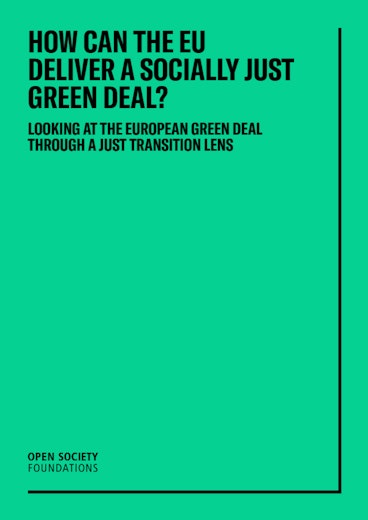The European Green Deal represents the most ambitious set of policies for ecological transformation the world has ever seen, with policy initiatives putting Europe on track to reach net-zero global warming emissions by 2050.
This paper evaluates both the positive and negative social justice impacts of the European Green Deal and the Fit for 55 package. By examining how each policy impacts employment and disposable income, as well as public acceptance of the political transformation, the authors suggest ways to mitigate negative impacts and amplify positive ones.
This analysis shows that there is still a balance to be struck between transforming Europe’s economy and ensuring a just transition. While the planned funding streams are welcome, more clarity is needed on how to avoid the most regressive aspects, particularly those that are likely to have an impact on individual household budgets such as housing and transport.
Download
-
How Can the EU Deliver a Socially Just Green Deal? (410.76 Kb pdf file)
Download the 36-page publication.
Read more
Climate Finance
Unlocking Sorely Needed Investment in Green Energy Projects Across the Global South

Allied Climate Partners, supported by Open Society and other funders, aims to mix public and private funds to support clean energy production and transport in Asia, Africa, Latin America, and the Caribbean.
Art for Healing In Depth
Land, Memory, and the Power of Art

How can communities use art to imagine a better tomorrow that protects and celebrates nature—and the people that live within it? The 2023 Soros Arts Fellows will pursue projects that reckon with the role of socially engaged art in a time of crisis.
People-Centered Progress
The Challenge at COP28: Safeguarding Climate Justice

Evidence of the climate crisis abounds, but progress in addressing it has been far too slow. At COP28, wealthy nations need to fulfill their commitments to aid developing nations on the front lines of climate change.
